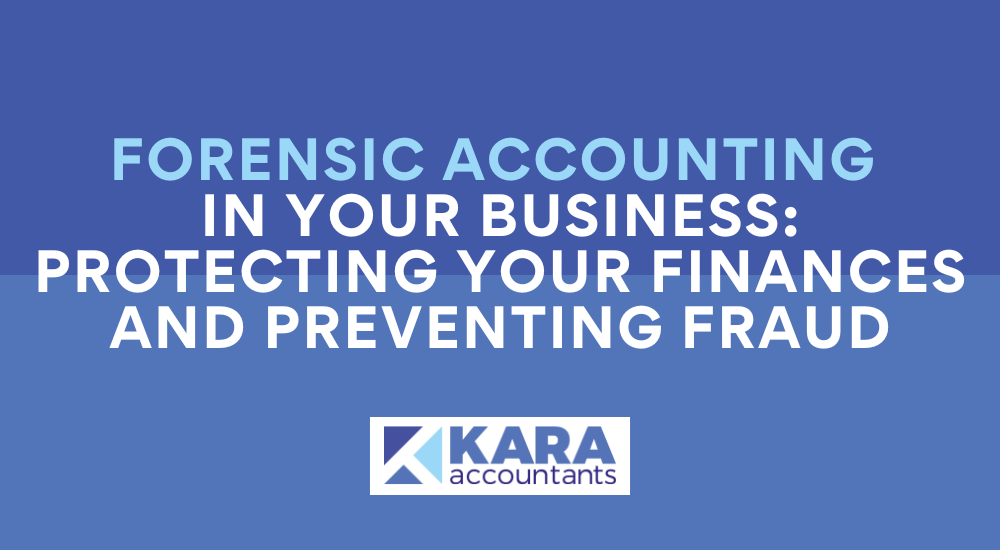
Forensic Accounting in Your Business: Protecting Your Finances and Preventing Fraud
In today’s fast-paced business world, financial fraud and mismanagement can pose significant risks to companies of all sizes. That’s where forensic accounting comes in. Forensic accountants use investigative techniques to uncover financial discrepancies, detect fraud, and ensure compliance with regulations. Whether you’re a small business owner or managing a large corporation, understanding forensic accounting can help safeguard your financial health.
What is Forensic Accounting?
Forensic accounting is a specialised field that combines accounting, auditing, and investigative skills to examine financial records. It is often used in legal proceedings, fraud investigations, and financial dispute resolutions. Unlike traditional accounting, which focuses on financial reporting and compliance, forensic accounting goes beyond the numbers to detect hidden issues and irregularities.
Why Your Business Needs Forensic Accounting
1. Fraud Detection and Prevention
Financial fraud can be devastating for businesses, leading to significant financial losses and reputational damage. Forensic accountants can identify suspicious transactions, detect embezzlement, and uncover fraudulent activities before they escalate.
2. Litigation Support and Legal Disputes
Forensic accountants play a crucial role in legal cases involving financial disputes, such as contract breaches, business valuation disagreements, and shareholder disputes. Their expertise helps provide accurate financial evidence in court proceedings.
3. Regulatory Compliance
Compliance with financial regulations is essential to avoid legal penalties and maintain credibility. Forensic accountants ensure that businesses adhere to tax laws, anti-money laundering regulations, and industry standards.
4. Insurance Claims and Risk Assessment
Forensic accountants help businesses assess financial losses due to fraud, natural disasters, or employee theft. Their detailed analysis supports insurance claims and risk management strategies.
5. Financial Due Diligence
Before entering mergers, acquisitions, or partnerships, businesses must evaluate financial risks. Forensic accountants conduct thorough due diligence to identify potential red flags and ensure a smooth transaction.
How to Implement Forensic Accounting in Your Business
1. Establish Strong Internal Controls
Implementing internal financial controls, such as segregation of duties, regular audits, and transaction monitoring, can reduce the risk of fraud.
2. Conduct Regular Financial Audits
Routine audits help identify discrepancies and ensure accurate financial reporting. Engaging a forensic accountant for periodic audits adds an extra layer of protection.
3. Train Employees on Fraud Awareness
Educating employees about fraud risks and ethical financial practices helps create a culture of transparency and accountability.
4. Utilise Forensic Accounting Software
Advanced accounting software with fraud detection capabilities can help monitor financial activities and flag suspicious transactions.
5. Seek Professional Forensic Accounting Services
Hiring a forensic accountant provides expert analysis and investigative support in case of financial discrepancies or suspicions of fraud.
Conclusion
Forensic accounting is an essential tool for businesses looking to safeguard their finances, prevent fraud, and ensure regulatory compliance. Whether you’re a startup or an established company, proactive forensic accounting measures can help you stay ahead of financial risks and secure long-term success.
If you suspect financial irregularities in your business or want to strengthen your financial controls, consider consulting a forensic accountant today or get in touch with us.

This Post Has 0 Comments